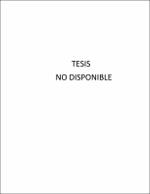| dc.contributor.advisor | Bocanegra Landeras, Alvaro | |
| dc.contributor.author | Benites Orchess, Hector Gianpierre | |
| dc.creator | Benites Orchess, Hector Gianpierre | |
| dc.date.accessioned | 2017-11-06T23:10:08Z | |
| dc.date.available | 2017-11-06T23:10:08Z | |
| dc.date.issued | 2017 | |
| dc.identifier.uri | https://hdl.handle.net/20.500.12759/3246 | |
| dc.description.abstract | Motiva el presente trabajo la reciente incorporación en mi país de una cláusula
antielusiva general y, en particular, el debate que se ha generado a propósito de
su constitucionalidad, siendo nuestro objetivo enriquecer dicho debate
compartiendo algunas ideas sobre los principios tributarios que nuestra
Constitución recoge y que entran en conflicto con la aludida cláusula antielusiva.
En apretada síntesis el debate se centra en determinar si la Norma XVI del Título
Preliminar del T.U.O. del Código Tributario peruano (Decreto Supremo N° 01332013-EF)
sustentada en el deber de todo ciudadano de soportar equitativamente
las cargas públicas y en la facultad del Estado de combatir el fraude de ley,
vulnera el principio de reserva de ley o el de seguridad jurídica.
Motivado en el citado debate, el presente trabajo pretende analizar el conflicto
entre los mencionados principios. Para ello he dividido el trabajo en capítulos, en
las que se plantean los alcances de la cláusula antielusiva general, tal como ha
sido incorporada en la Norma XVI del Título Preliminar del Código Tributario
peruano , se desarrollan los principios constitucionales que entran en conflicto, a
propósito de la incorporación de la cláusula, la situación jurídica actual de la
mencionada norma y en la que formulamos nuestra opinión sobre la
constitucionalidad de la cláusula y al final del trabajo me atrevo a señalar una
propuesta jurídica. | es_PE |
| dc.description.abstract | This paper motivates the recent addition in my country antielusiva a general clause
and in particular the debate that has arisen regarding its constitutionality, and our
objective to enrich the debate by sharing some ideas on tax principles that our
Constitution enshrines and that conflict with the aforementioned antielusiva clause.
In brief summary, the debate centers on whether the Standard Preliminary Title
XVI of the Peruvian Tax Code underpinned by the duty of every citizen to bear
public burdens equitably and in the power of the state to fight fraud law, violates
the principle of requirement of law or of legal certainty.
Motivated in that debate, the present paper analyzes the conflict between these
principles. To do this I divided the work into chapters, in which the scope of the
general antielusiva clause arise, as it has been incorporated in Rule XVI of the
Preliminary Title of the Peruvian Tax Code, the constitutional principles that conflict
unfold, purpose of the inclusion of the clause, the current legal status of such
regulation and in which we formulate our opinion on the constitutionality of the
clause and after work I dare to point out a legal proposal. | en_US |
| dc.description.uri | Tesis | es_PE |
| dc.format | application/pdf | es_PE |
| dc.language.iso | spa | es_PE |
| dc.publisher | Universidad Privada Antenor Orrego | es_PE |
| dc.relation.ispartofseries | T_DERE_314 | |
| dc.rights | info:eu-repo/semantics/closedAccess | es_PE |
| dc.rights.uri | https://creativecommons.org/licenses/by/4.0/ | es_PE |
| dc.source | Universidad Privada Antenor Orrego | es_PE |
| dc.source | Repositorio Institucional - UPAO | es_PE |
| dc.subject | Codigo tributario | es_PE |
| dc.subject | Antielusiva | es_PE |
| dc.title | La cláusula antielusiva de la Norma XVI del titulo preliminar del T.U.O Código Tributario y su afectación a la libertad de empresa según el artículo 59° de la Constitución Oolítica del Perú | es_PE |
| dc.type | info:eu-repo/semantics/bachelorThesis | es_PE |
| thesis.degree.level | Título Profesional | es_PE |
| thesis.degree.grantor | Universidad Privada Antenor Orrego. Facultad de Derecho y Ciencias Políticas | es_PE |
| thesis.degree.name | Abogado | es_PE |
| thesis.degree.discipline | Derecho | es_PE |
| dc.publisher.country | PE | es_PE |


